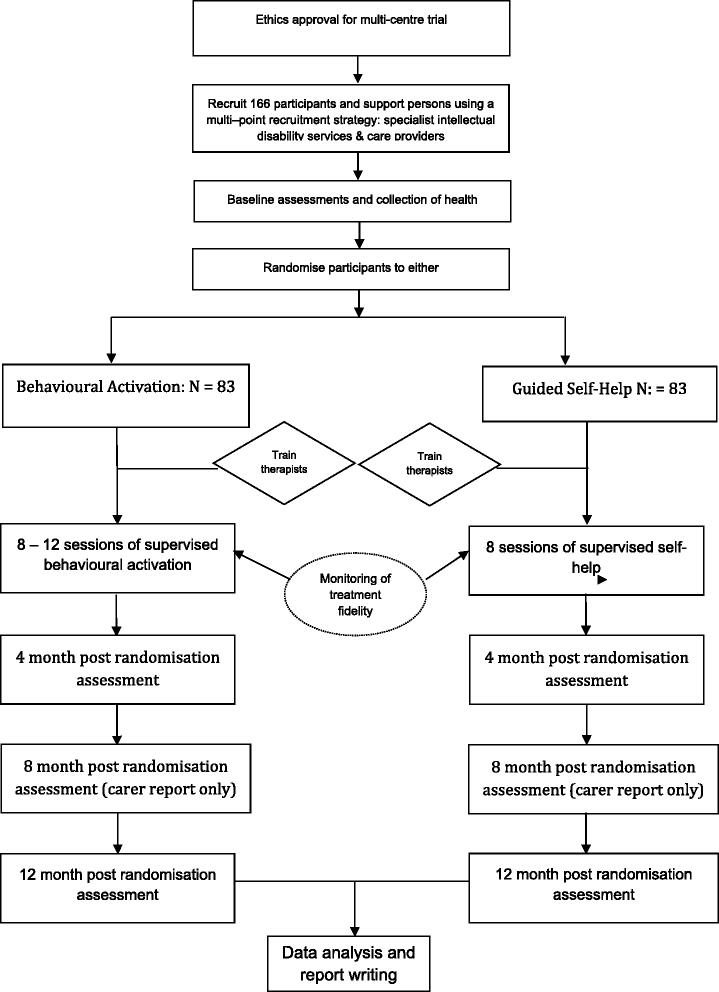BEAT-IT: Comparing a behavioural activation treatment for depression in adults with intellectual disabilities with an attention control: study protocol for a randomised controlled trial
- PMID: 26714891
- PMCID: PMC4696180
- DOI: 10.1186/s13063-015-1103-5
BEAT-IT: Comparing a behavioural activation treatment for depression in adults with intellectual disabilities with an attention control: study protocol for a randomised controlled trial
Abstract
Background: Depression appears to be more enduring amongst people with intellectual disabilities, suggesting that it is a more chronic problem or more poorly managed in this population. This is not helped by a lack of evidence about the effectiveness of psychological therapies for people who have intellectual disabilities and depression. Behavioural activation, which aims to counteract depression by increasing individuals' level of meaningful activity and their exposure to positive reinforcers, has proven to be as effective as cognitive behavioural therapy in the general population. Given that this therapy makes fewer communicative demands and focuses on activity, it was thought that behavioural activation would be both accessible and apt for people with intellectual disabilities, who are often socially marginalised.
Methods/design: This study is a multi-centre single-blind randomised controlled trial of behavioural activation versus a self-help attention control intervention for depression in adults with mild/moderate intellectual disabilities. The study has an internal pilot in one centre, to establish that recruitment can be built up and sustained at the required level, before being rolled out across the other sites. One hundred sixty-six participants will be randomly assigned to the behavioural activation or self-help interventions, which will be delivered to individuals with mild to moderate intellectual disabilities, accompanied by someone who provides them with regular support. Both interventions are manualised and will be delivered over a period of approximately 4 months. The primary outcome measure will be the Glasgow Depression Scale, a self-report measure which is completed at baseline and 4 and 12 months post-randomisation. Secondary outcomes include measures of participants' activity levels, proxy reports of depressive symptoms, and cost-effectiveness.
Discussion: The study will provide evidence about the effectiveness of behavioural activation for depression, adapted for people who have mild/moderate intellectual disabilities, and will inform the delivery of psychological therapies to people with intellectual disabilities in practice.
Trial registration: Date trial registered: Nov. 13, 2012; trial registration number: ISRCTN 09753005.
References
-
- Morris JK. The National Down Syndrome Cytogenetic Register 2007/8 Annual Report. Barts and The London School of Medicine and Dentistry. London: Queen Mary University of London; 2009.
Publication types
MeSH terms
Associated data
Grants and funding
LinkOut - more resources
Full Text Sources
Other Literature Sources
Medical


